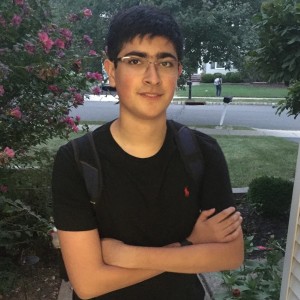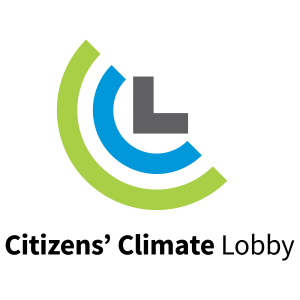
CCR Ep 45 How to Engage Young People in Your Climate Group. A New Jersey Success Story
 2020-02-26
2020-02-26
Concerned about climate change, Princeton University student, Jonathan Lu, and his friends became excited about a particular solution: Carbon Fee and Dividend. Through Citizens Climate Lobby they learned about a proposed national policy to price carbon and give the revenue back to households. That inspired them to ask, Could this be done in New Jersey?
Having a good idea is one thing, but doing all the hard work to make it a reality is quite another. Jonathan and his friends realized they needed help researching New Jersey state law. They also needed to speak with over 100 stake-holders all over the state. They wanted to make sure idea for legislation would appeal to as many different groups as possible.
Luckily they found a group of hard-working, intelligent, and creative people who enthusiastically joined the cause. People like Ahan Raina and Aurora Yuan. At the time they were both 15 years old.
Our host, Peterson Toscano, chats with Jonathan, Ahan, and Aurora, members of New Jersey Student Climate Adadvocates (NJSCA.) They and scores of high school and college students are working on the New Jersey Climate Investment and Carbon Cashback policy. In addition to applying what they are learning in school about climate change, economics, and civics, they are discovering just how challenging it is to devise a bill that appeals to as many people as possible. They are committed to seeing households benefit once carbon pricing begins in the state.
After hearing from over 100 stakeholders though, they realized they needed to make adjustments to their original policy proposal. In a state with many businesses and industries, they heard how their idea might impact New Jersey businesses. They came up with a compromise that has made the bill better for more people in New Jersey.
While they worked on the policy though, Student Climate Strikes broke out in North America and beyond. Why do policy work instead of strike? Both Ahan and Aurora share insightful responses.
“People are definitely talking more about climate change because of the work of these climate strikers,” says Ahan. He adds, “You can build as much public interest as you want, but then someone has to do the work of building the policy.”
Aurora believes policy is the best way to address climate change, but not the only way. “I do participate in the climate strikes...I think policy though is the real concrete solution because we can’t get any tangible change without creating policy and systematic change.”
She understands why many of her peers are furious about the world they will inherit. For Aurora though, that anger can get in the way of the conversation. “The more angry you are and the more angry words you say to other people, the less they are willing to listen to you and the less they are willing to work with you...I think having a tone of calmness and willingness to speak with others and listen to where others are coming from, and then cooperating with others is really, really important right now."
Jonathan, experienced great success working with high school students on climate policy. In this episode he offers excellent advice to climate groups who want to work with young people.
If you inspired anew by this rising generation and learn some practical strategies for developing effective policy while for working with youth, hear the full interviews in this latest episode.
To learn more, follow them on Instagram.
The Art HouseIrish author, Shirley McMillan wanted nothing to do with climate change. A busy mom with a young child, she recoiled when Peterson Toscano first initiated a conversation with her about climate change six years ago. She did not deny the reality or seriousness of climate change, but it all felt too much. She was also uninspired by the many suggestions for how women can do all the hard work to lower the family’s carbon footprint.
Then something changed; Shirley began to see climate change as something more than just an environmental issue; she realized how it is also a human rights issue.
Hear a lively conversation between Shirley and Peterson as she shares why it took her awhile to warm up to climate action. Learning about her reasons may help you better understand why your own friends and loved ones switch off when you start talking about climate change. Discover how over time you can influence your friends to embrace climate change on their own terms.
Puzzler QuestionLike Shirley, your friend, Heather, told you she wanted nothing to do with your climate work. She also had a limited view of what that work looks like: “Don’t take this the wrong way, but I don’t have time for climate work. I feel bad saying that but I work full time and I have two children still in school. I don’t have time for protesting right now”
Hear what listeners had to say to Heather.
New Puzzler Question
You are talking to your friend, Charles. Charles is concerned about climate change but doesn’t know what we can do about it. You explain how carbon pricing is a powerful tool to help us decrease fossil fuel emissions. Before you could say more Charles interrupts, “Are you out of your mind? Did you see what happened in France when they tried that. Those Yellow Vest Protest! It was a political disaster! You really expect that to work here?”How would you respond to Charles?Send Peterson your answers. Leave your name, contact info, and where you are from. Get back to him by March, 15, 2020. You can leave a voice mail of 3 minutes or less at 518.595.9414. (+1 if calling from outside the USA.) or email your answers to radio @ citizensclimate.org
Dig Deeper- Economists’ Statement on Carbon Pricing The Climate Leadership Council
- Pricing Carbon The World Bank
- A Brief Look at Carbon Pricing by Canadian Province The North Shore News
- Ten Carbon Pricing Bills before the US Congress, Eco-Justice Journey, The Presbyterian Mission
- Energy Innovation and Carbon Dividend Act (HR 763)
You can hear Citizens’ Climate Radio on iTunes, Spotify, Stitcher Radio, SoundCloud, Podbean, Northern Spirit Radio, Google Play, PlayerFM, and TuneIn Radio. Also, feel free to connect with other listeners, suggest program ideas, and respond to programs in the Citizens’ Climate Radio Facebook group or on Twitter at @CitizensCRadio.
More Episodes
 2020-06-30
2020-06-30
 4
4
 2020-06-12
2020-06-12
 824
824
 2020-06-05
2020-06-05
 769
769
 2020-05-29
2020-05-29
 801
801
 2020-05-22
2020-05-22
 809
809
 2020-05-22
2020-05-22
 864
864
 2020-05-16
2020-05-16
 1
1
 2020-05-09
2020-05-09
 831
831
 2020-04-24
2020-04-24
 1.2k
1.2k
 2020-04-17
2020-04-17
 872
872
 2020-04-10
2020-04-10
 791
791
 2020-04-03
2020-04-03
 886
886
 2020-03-27
2020-03-27
 5
5
 2020-03-27
2020-03-27
 702
702
Create your
podcast in
minutes
- Full-featured podcast site
- Unlimited storage and bandwidth
- Comprehensive podcast stats
- Distribute to Apple Podcasts, Spotify, and more
- Make money with your podcast
It is Free
- Privacy Policy
- Cookie Policy
- Terms of Use
- Consent Preferences
- Copyright © 2015-2024 Podbean.com



